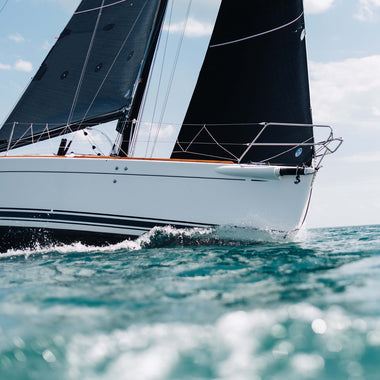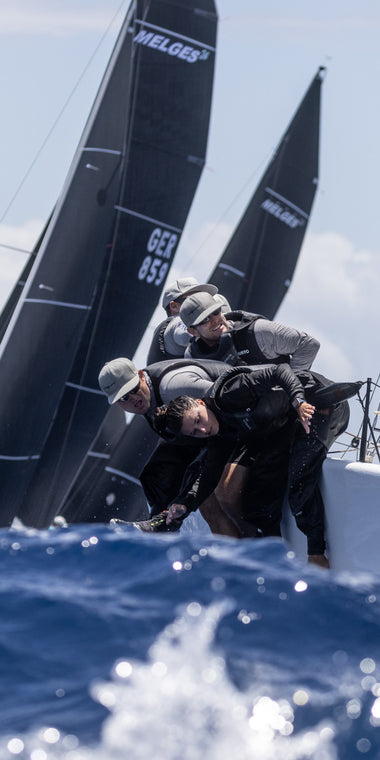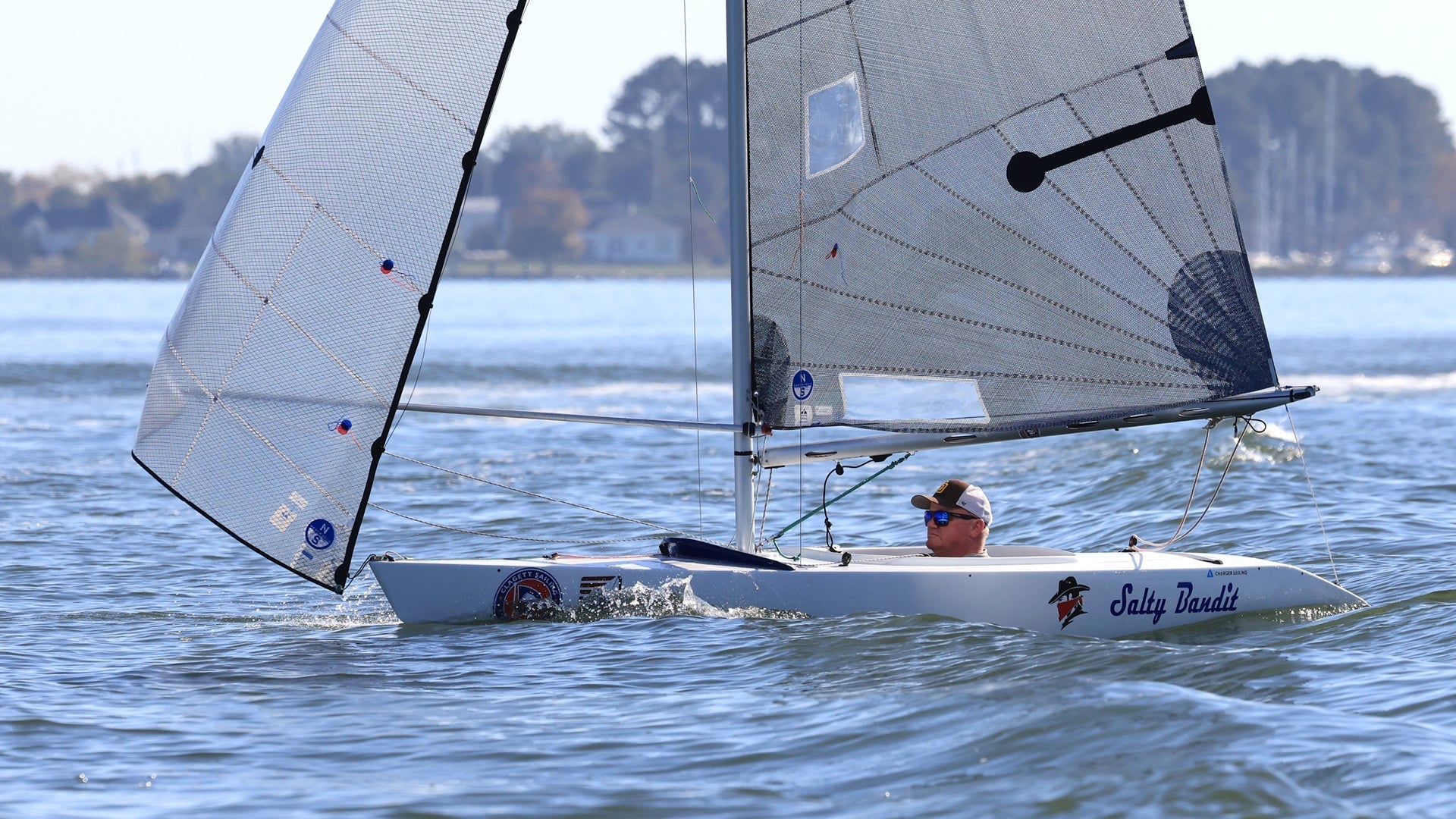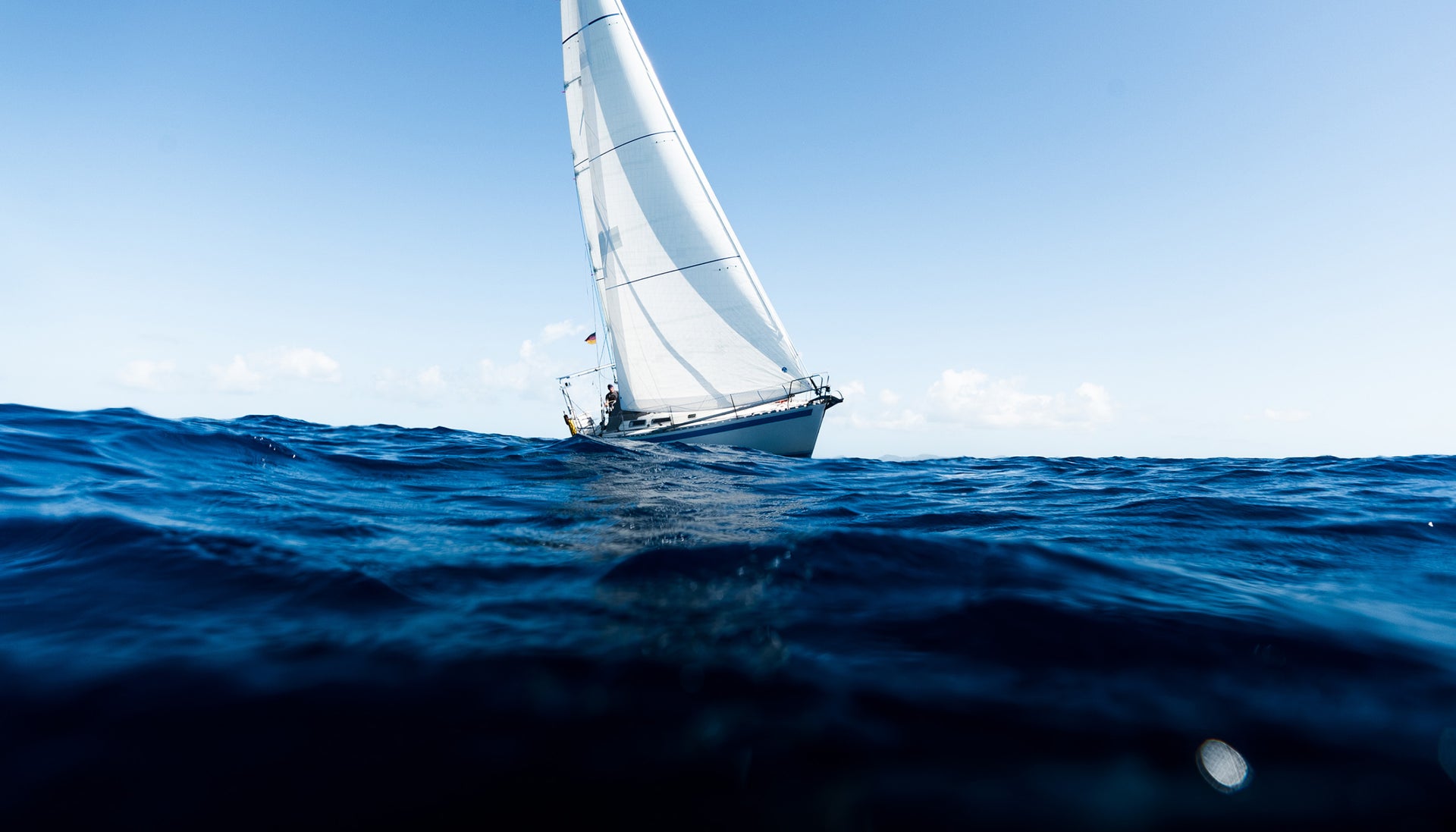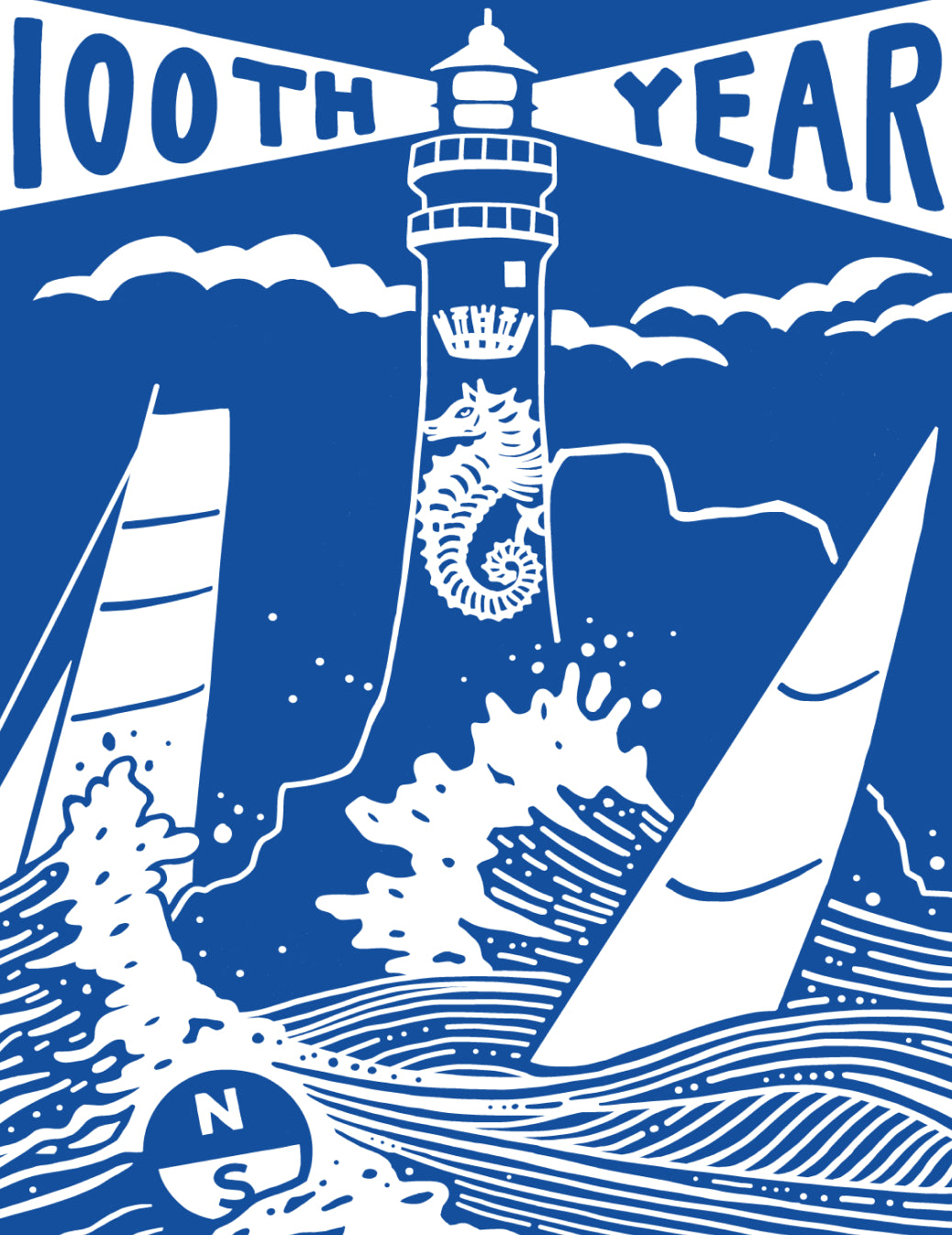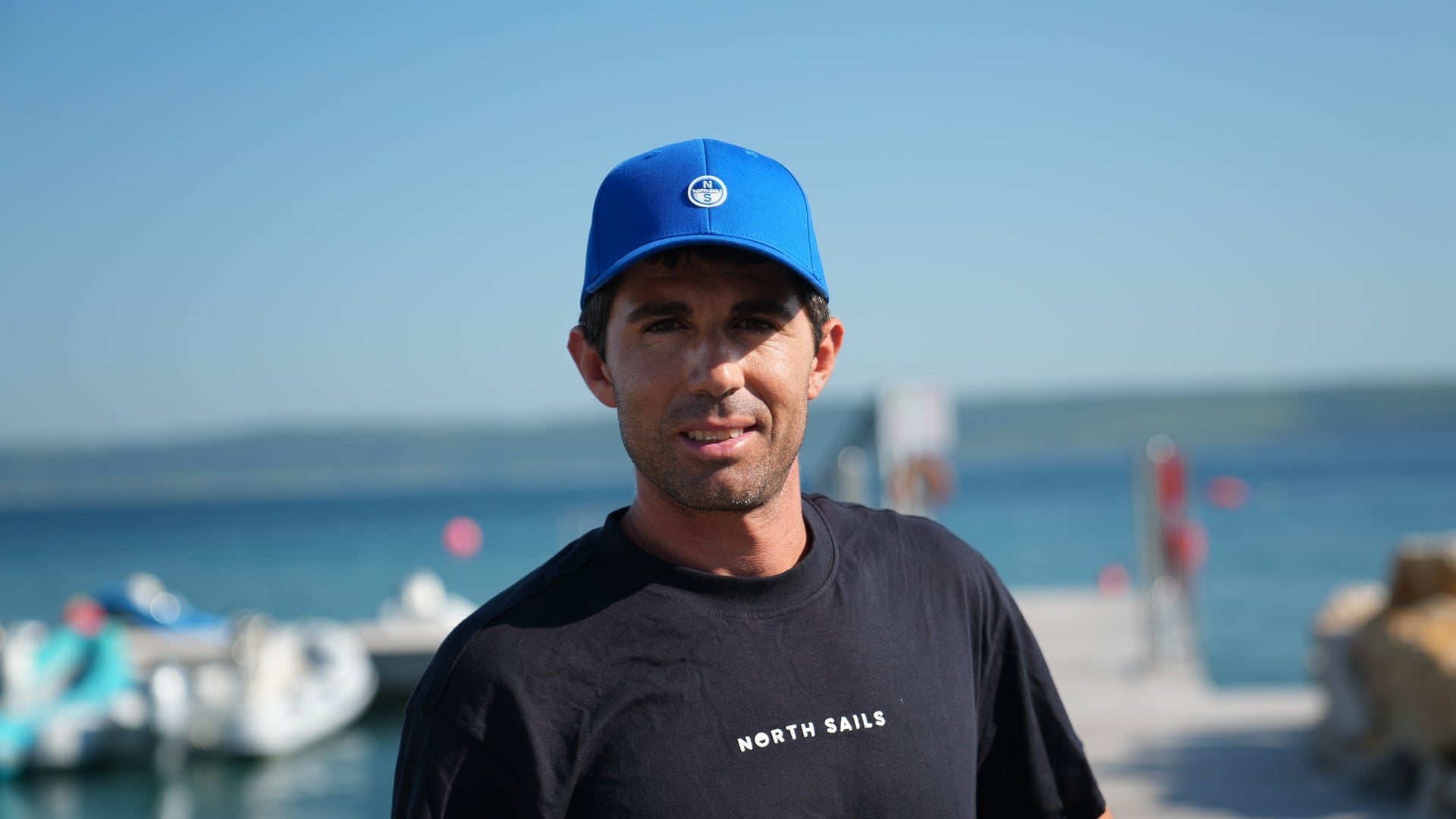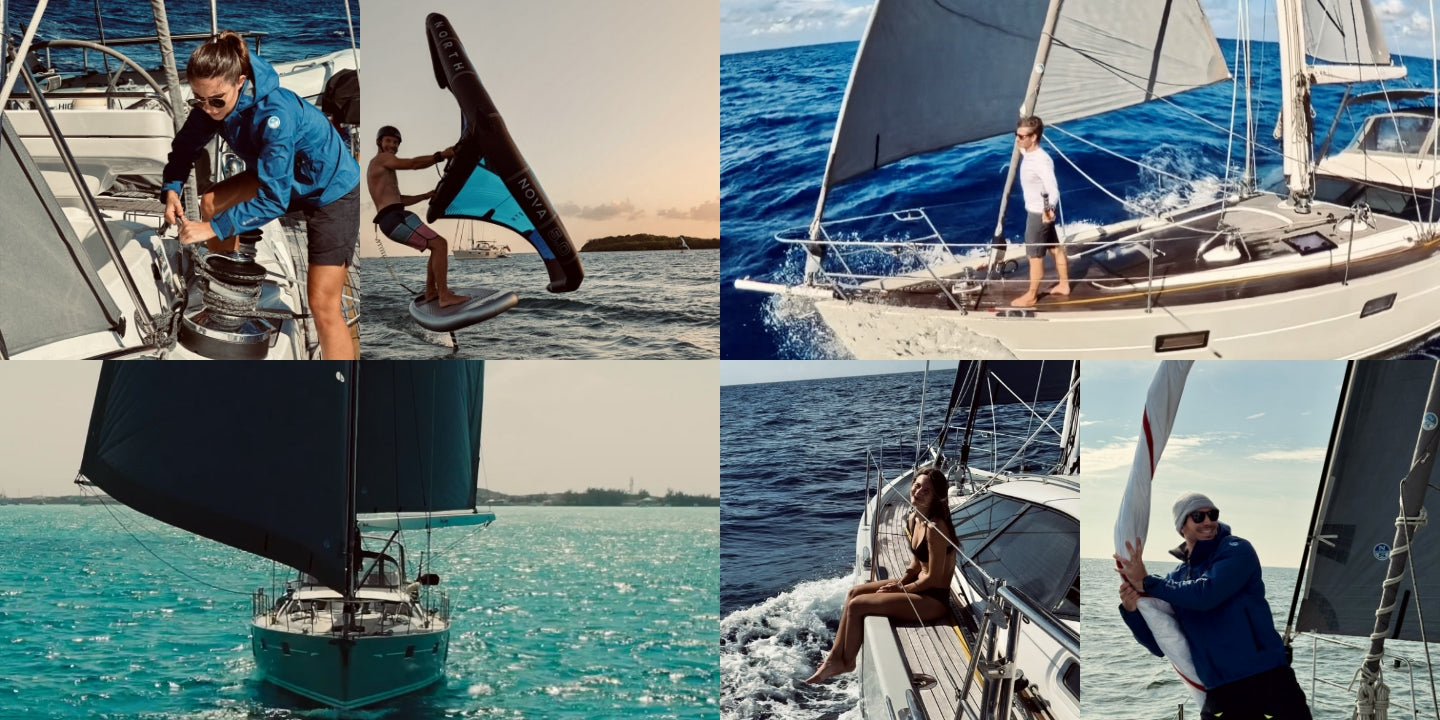FROM SETBACK TO THE STARTING LINE: CHUCK ALLEN'S COMEBACK STORY
After suffering a stroke, Allen’s journey through recovery, racing, and rediscovery leads him to the 2.4mR World Championship.
Chuck Allen was laid out, fallen, and he could not get up. It was just over two-and-a-half short years ago. Allen had taken a nap and, upon awakening, came to the realization that he’d suffered a major stroke while sleeping. Completely immobile, unable to even reach his phone, he spent several hours on the floor until his wife, Becky, arrived home and he was rushed first to the hospital, and then to the Vanderbilt Rehabilitation Center in Newport, R.I. He couldn’t speak. He was confined to a wheelchair. The road ahead was totally uncertain, as was Allen’s future. It could’ve been bleak.
Instead, this is a tale with a very happy ending.
Today, Allen is once again serving as a sales/ops rep for North Sails; he’s regained about 85-percent of his balance and mobility; and, perhaps most importantly, he’s once again showcasing his world-class racing skills, which he began seriously honing as an All-American collegiate sailor at the University of Rhode Island several decades ago. This fall, as one of the five-person Team Clagett squad, he’ll be competing in his latest one-design—the 2.4mR, also known as the “one-person keelboat”—in the class’s World Championship regatta on Italy’s spectacular Lake Garda.

“It’s, like, kind of a success story,” he told me, in his usual, understated way. But you could basically say the same thing about Allen’s entire career racing sailboats at the highest levels.
“Born and raised” in the coastal Rhode Island town of Wickford, Allen said he got a “kind of a late start” in sailing when, at age 13, “my parents sent me to sailing camp for the summer, and it took off from there.” Two years later, having quickly upgraded from a Sunfish to a 420, he was not only a stalwart on Rhode Island’s nationally-ranked Bishop Hendricken high-school team, he also competed in back-to-back 420 World Championships. That led to college sailing on a blockbuster squad that included classmate Lars Guck; by the time both were sophomores, URI was the nation’s top program. “I never looked back,” Allen said.
At the same time, during those university years, Allen landed a part-time gig at Shore Sails in Newport where, perhaps not coincidentally, future North Sails sailmakers and execs Ken Read and Dan Neri were just launching their careers. It turned out to be a top-notch education in its own right. In addition to racing J/22s, J/24s, Snipes and Lightnings, Allen got to sail with the likes of Brad Read, Bill and Doug Shore, Ed Adams and many others. “It was like all the heavy hitters at the time,” he said.
After graduation, Allen landed his first “real job” with West Marine, the retail outlet that was beginning to explode. At first, his role was to launch the opening of new stores. Later, while managing the company’s Sausalito, California, store, he met Gary Weisman, at the time the president of North Sails, who offered him a job with a new division in the company called Cruising Direct. After returning to Rhode Island, he eventually transitioned to One Design sales and big-boat programs in what became a long and fruitful association with North Sails. He won J/24 championships with Will Welles and in Grand Prix sailing, Henry Little became a trusted mentor. In many respects, in the best ways possible, he’d come full circle, back to his roots.

Then, unfortunately, he suffered his stroke. However, rather than slamming doors shut, it unexpectedly opened an important new one. Which brings us to the 2.4mR class, and for a proven competitor like Allen, an exciting fresh challenge.
Once again, there was a bit of serendipity to how it all unfolded. As his recovery and rehab steadily progressed, and he even regained his voice—“One day it just came back,” he said—he got back on the racecourse calling tactics on fully crewed boats, always a strong suit. And he also traveled to Savannah, Georgia, for US Sailing’s National Programs Symposium, where by chance he encountered an old friend: Betsy Allison, the National Sailing Hall of Fame inductee who has become a force in the realm of adaptive sailing, coaching numerous sailors with disabilities. It proved to be a fortuitous meeting.
Allison wondered if Allen might consider sailing a 2.4mR, a boat about which he knew literally nothing. After a bit of research, he was intrigued and interested. Which is when Allison connected him to Andrew Parish, the director of boat grants at Clagett Sailing, the renowned organization with a clear-cut mission: “to provide sailors with disabilities the opportunity to improve their skills and reach personal goals through world-class coaching and competition.” Allen applied for and quickly received a grant.
Fittingly, a year ago, his first 2.4mR event was the annual C. Thomas Clagett Jr. Memorial Regatta in Newport. Allen’s learning curve was steep, but he ascended quickly; before long, he was winning races. One event led to another, and another still. Allen was hooked. The icing on the cake was being named to represent Team Clagett at the Worlds. From now until then, when it comes to sailing, the 2.4mR will be Allen’s world.

The 13’8” one-design, weighing in at about 560 pounds, looks a lot like a replica of a vintage 12-Metre from the old America’s Cup days. It’s steered by either a tiller or foot pedals—competitors are a mix of able-bodied and “para” sailors, hence the steering options— and is eminently tweakable, with a mast puller, adjustable jib leads, backstay, vang and so on. Allen said his favorite control is the full traveler on his boat, which runs from gunnel to gunnel, about two-feet long (not every 2.4mR has one). “It really makes a difference,” he said. “Off the line, staying in a lane, it’s a powerful tool. The boat is very cool to sail.” And what could be cooler than racing one internationally, on a legendary Italian lake?
As always, Allen will be competing with a fresh suit of North Sails—Main-FR-1, AP Jib-TB-5, and Heavy Jib-HH-1—which play to his strengths, especially off the starting line, where he thrives. As for personal expectations in what is shaping up to be a hundred-boat fleet, Allen has a stated goal: “Hoping for maybe top ten. With a hundred boats, I think I can do pretty well with that. I’m really good at getting off the line, finding space, that’s my strong point. I’m just going to go for it.”
Don’t bet against him. One thing’s been proven. You can knock Chuck Allen down. But he’s sure going to get back up.
📸 Will Keyworth
